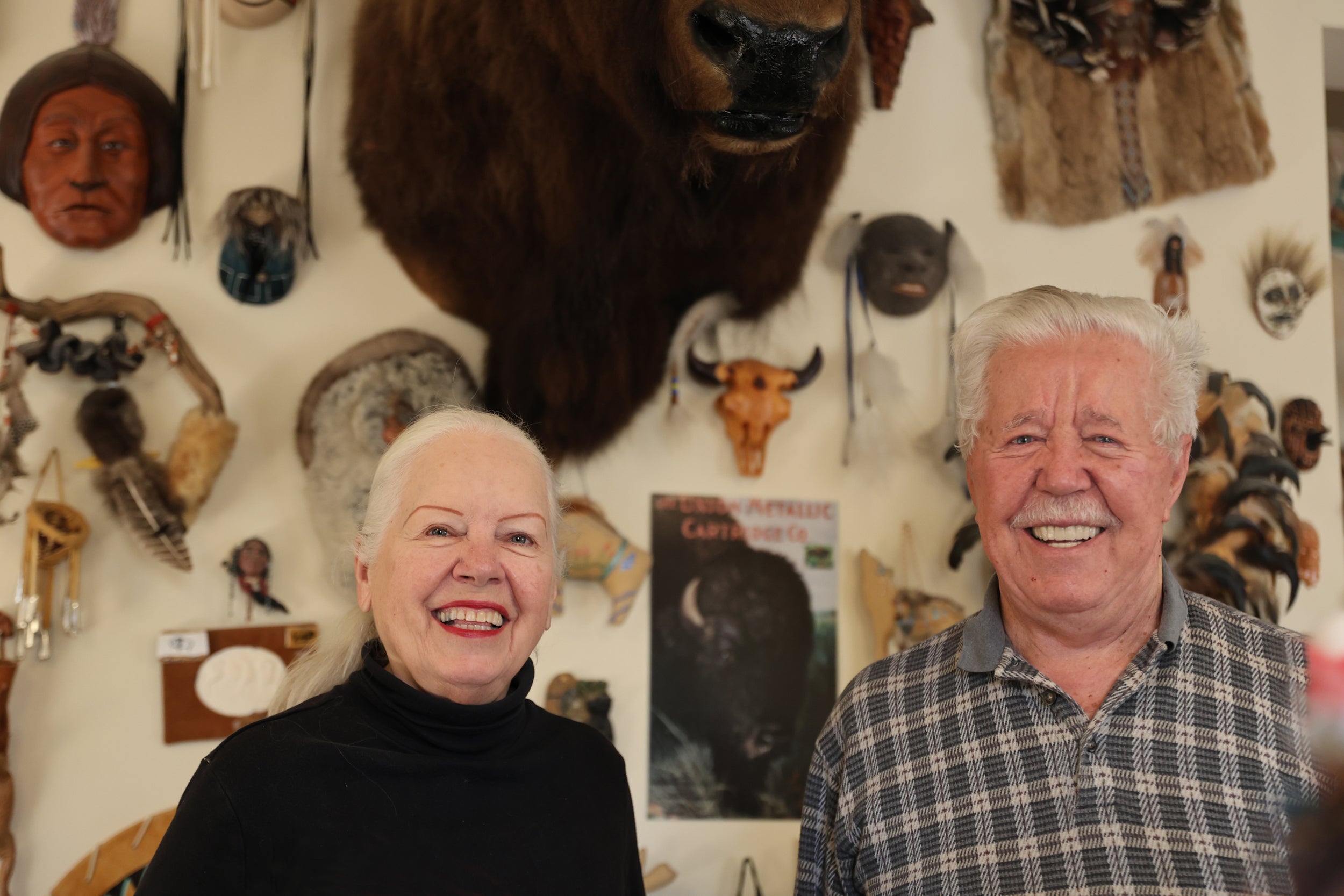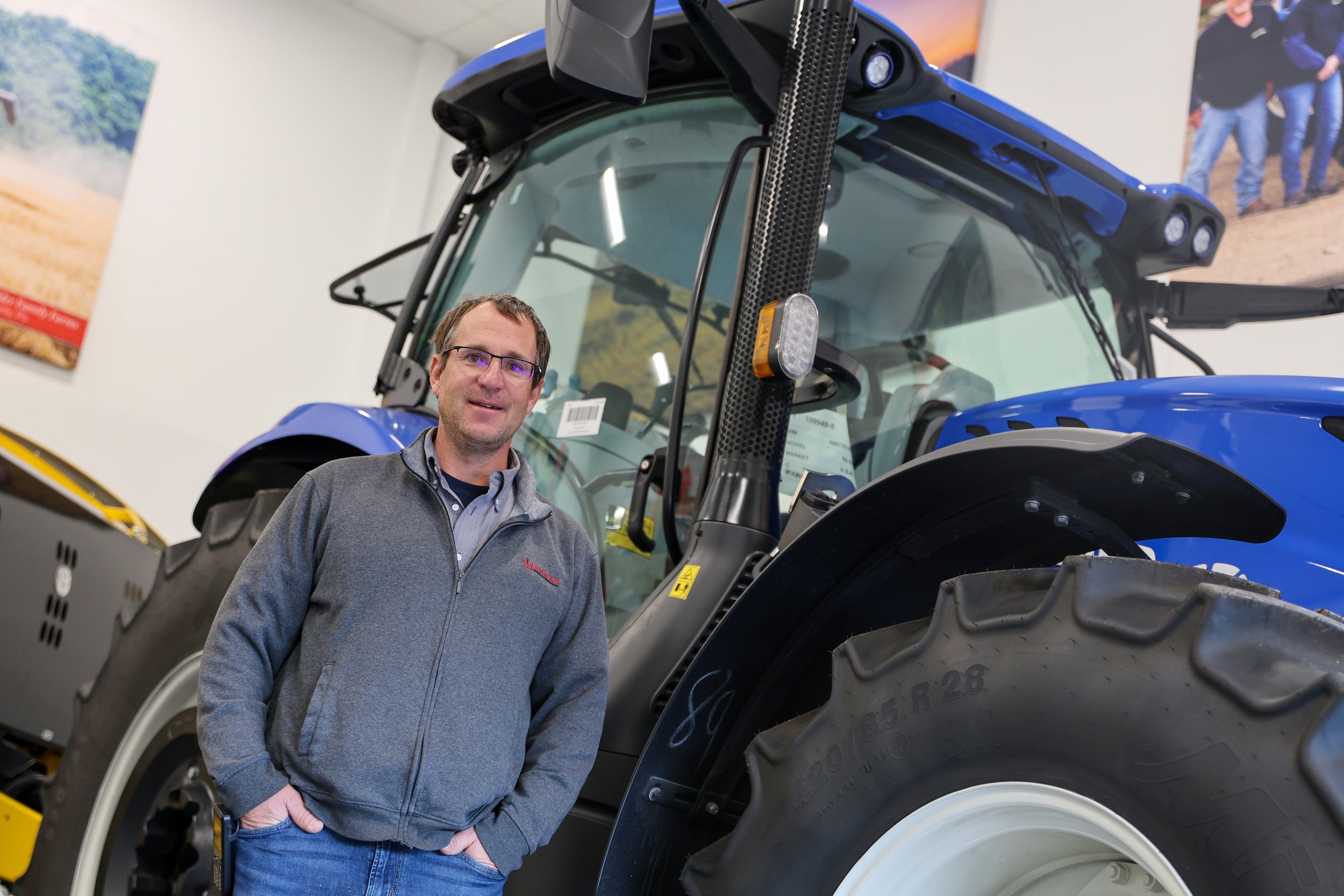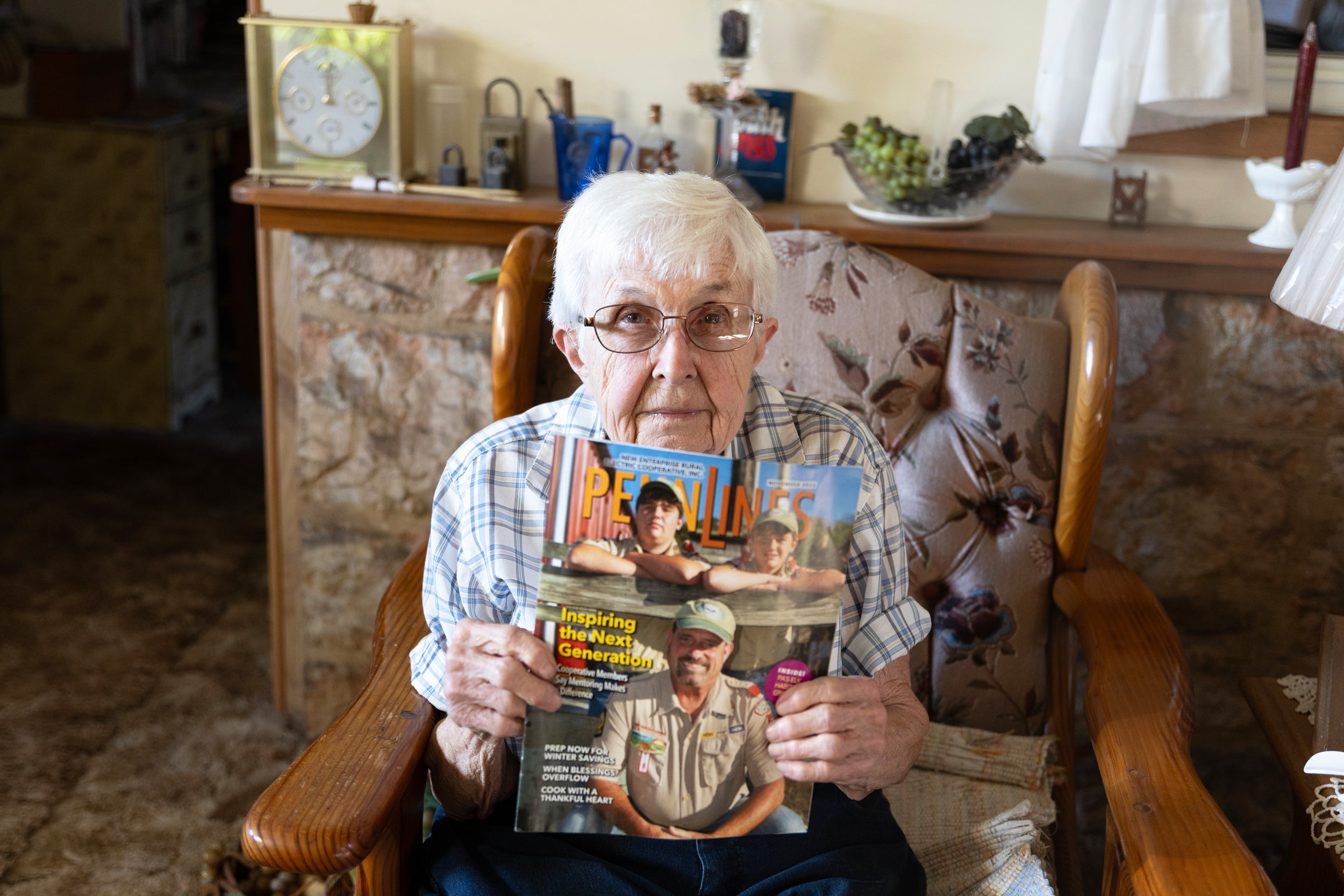Penn Lines
A Magazine for the Generations
Colin P. McGuire
Senior Editor/Writer

From those who have been reading Penn Lines for more than half a century to those young enough to pack an issue in their suitcase as they set out to study abroad, there is no denying the impact the magazine has had on generations of readers.
There’s also no denying that Penn Lines simply wouldn’t exist without them.
Now, as the magazine celebrates its 60th anniversary, we caught up with some of those loyal readers, who shared their memories, their favorite articles and why Penn Lines has become a fixture in their homes.
“It’s just always been around,” Kristy Bigelow, a third-generation reader, notes. “Growing up, we would read it every month – and even as I grow older, I try and keep that tradition alive.”

'A Key Part of Our Lives'
Kathy & Leslie Megyeri
While Kathy Megyeri can easily list her top three Penn Lines articles, it’s the third that she lights up about most.
“It’s the ‘Off the Beaten Path’ story from June 2023,” Kathy says with a smile. “We’ve lived here for 35 years and that set us on a path to explore areas we haven’t been to. We went to the history museum in Harrisburg and took other little field trips because of that article.”
Megyeri and her husband Leslie, who live in Fairfield, Pa., and are members of Gettysburg-based Adams Electric Cooperative, estimate they have been reading the magazine for nearly 30 years. It wasn’t until recently, though, that she started giving copies away – a practice that took her all the way to Washington, D.C. There, she visited a senior living facility and shared another favorite article with one of the residents.
“I really loved the story about going to college vs. going to trade schools,” Kathy says. “It really resonates with us because we support trade schools and donate to them. I loved it so much, I had to give it away.
“I read Penn Lines from cover to cover every month,” she adds. “It’s a key part of our lives.”

A Good Habit to Have
John & Elizabeth Hoffman
Of all the places on Earth one could hope to find an issue of Penn Lines, Japan might be the most far-flung option. Yet, that was the case in 2025, when John and Elizabeth Hoffman’s daughter, Julia, posed for a photo with the magazine – part of a 60th anniversary reader contest – while studying abroad.
“She actually first took Penn Lines to Senegal,” Elizabeth says. “She won a scholarship to Africa. Now, she’s on her fourth scholarship in Japan and she thought it would be fun to take an issue with her.”
The Hoffmans, members of REA Energy Cooperative in Indiana, Pa., have read the magazine for 33 years – a habit they picked up when they moved into their home in Mineral Point, Cambria County.
While Elizabeth likes to peruse the classifieds, John says he prefers articles about lineworkers and their families, noting he has a friend who is a retired lineman. Despite these differences, both husband and wife agree on one thing: They would like to see a larger focus on environmentally friendly energy as the power industry expands.
They believe so much in going green that instead of keeping old issues of Penn Lines, they recycle them. “My grandma kept every National Geographic she ever received,” Elizabeth says. “That’s not us.”

Improving with Age
June & Kristy Bigelow
At least three generations of the Bigelow family have read Penn Lines.
“I like the whole book,” says June, the family’s 87-year-old matriarch who lives on a farm in Williamsburg, Blair County. “The magazine keeps changing every year, and it gets better every year.”
But the Bigelows’ connection to a cooperative – in this case, Huntingdon-based Valley Rural Electric Cooperative (REC) – doesn’t stop there. June’s husband, William, served on Valley’s board of directors in the late 1970s until he passed away in 1992, at which point, their son, Richard, took his father’s seat. After Richard died, his wife Cindy joined the board in 2004, and today, serves as its secretary.
June’s granddaughter Kristy, a farmer, also has fond memories of flipping through the pages of the magazine.
“Penn Lines was always something that was on our table,” she says.
In fact, June has issues that date back to the 1970s. She also likes to share current copies with family members who don’t receive the magazine.
“They really do get better every year,” she says, “and I can say that – I’ve been reading them for 53 years.”

A Preference for Paper
Bryan Messick
Of the many regular features in Penn Lines each month, Bryan Messick, a seasonal member of Tri-County REC, has grown to appreciate one in particular: the calendar of events.
The only problem? Life keeps getting in the way.
“At some point, I probably will get to some of these events,” he says, laughing. “We don’t have many free weekends right now because of the kids but just give me 10 more years and I will.”
Messick came across Penn Lines for the first time four years ago when he became treasurer at his camp in Potter County. Part of the treasurer’s duties, he explains, is paying the bills, so along with receiving the bills in the mail, he received the magazine, too.
He instantly fell in love, he says, noting he enjoys reading about the inner workings of the power distribution process.
“What fascinates me is how the electricity gets from where it is to the house,” Messick says. “I really like that kind of stuff.
He also likes that Penn Lines hasn’t gone digital (although you can still read past issues at prea.com). Every month, it’s printed and mailed to co-op members.
“I’m still the person who likes to hold a piece of paper,” Messick says while reflecting on his appreciation for the publication. “Each month, I sit down and read Penn Lines – all of it.”

'Penn Lines is Perfect'
Ila Jane Diehl
There are longtime readers of Penn Lines – and then there are longtime readers of Penn Lines. Ila Jane Diehl, a member of New Enterprise REC, is the latter.
“I’m not sure; maybe 70 years?” she speculates when asked how long she’s been reading the publication. Then, after she’s reminded that the magazine is celebrating its 60th anniversary, she laughs heartily.
“OK,” she concludes, “that must mean I’ve been reading it for 60 years. I don’t think I’ve ever missed an issue.”
Perhaps more fascinating than her perfect reading record is the way she reads the magazine: from the last page all the way to the first. It’s a habit she picked up from her mother, who read the daily newspaper the same way.
With a house in both Hopewell and Liberty townships – “I eat in Hopewell Township, and I sleep in Liberty Township,” she quips while pointing to both her kitchen and bedroom – the 87-year-old has been a New Enterprise REC member for much of her life.
And Penn Lines has been her publication of choice, mostly because it has just the right amount of advertising – not too much, not too little.
“I don’t buy a lot of stuff,” she explains, “so I could care less about any of that. Penn Lines is perfect, though. I’ve always liked the magazine just the way it is.”


